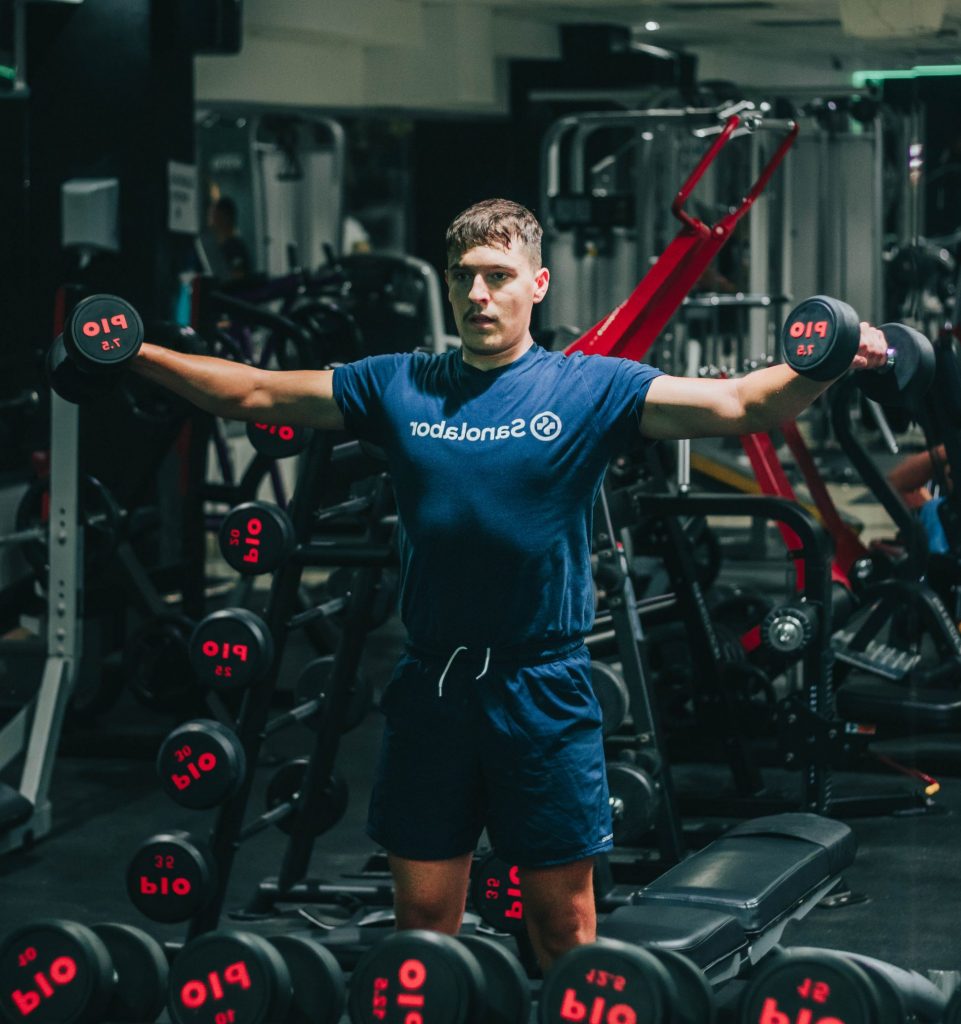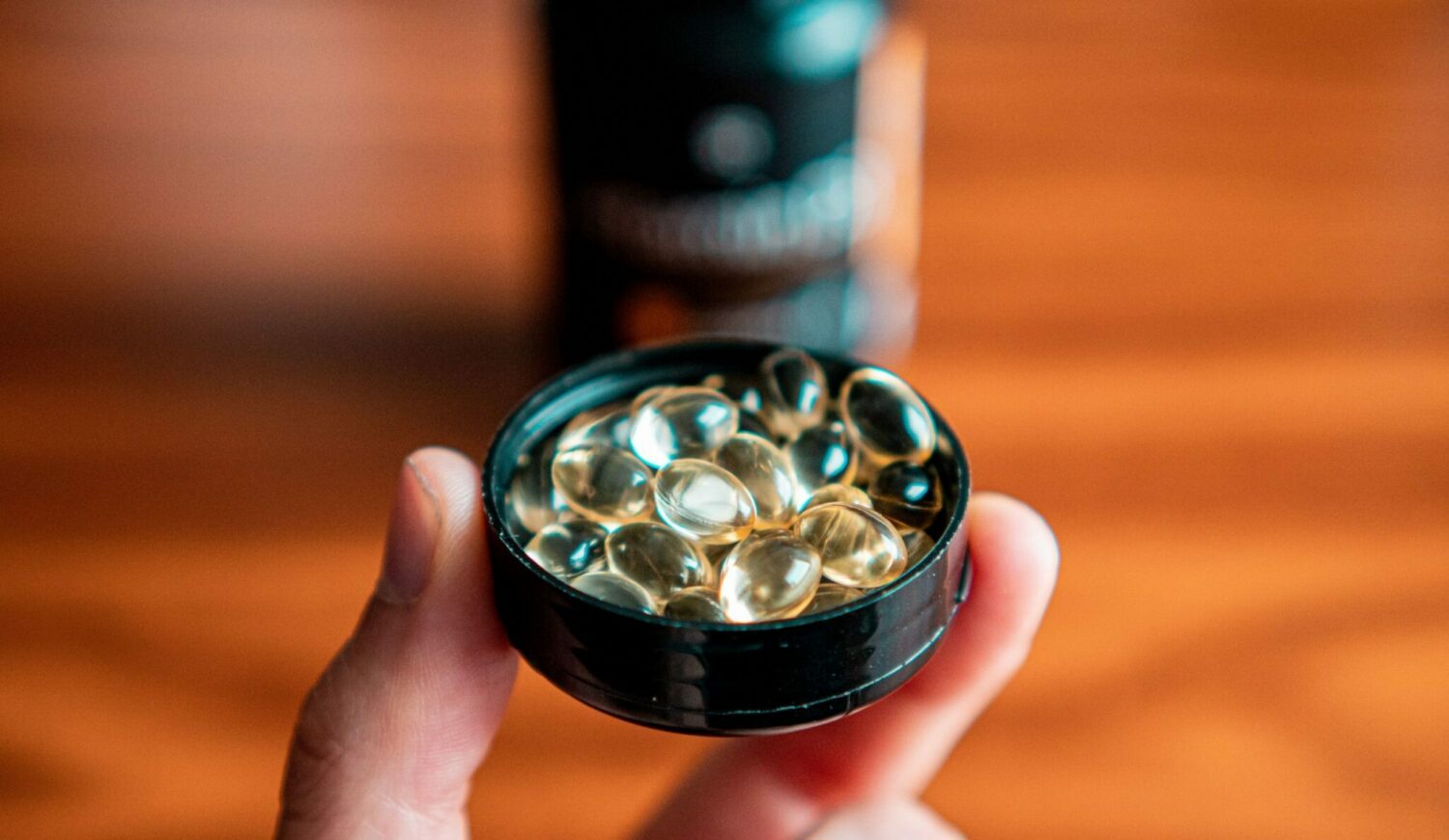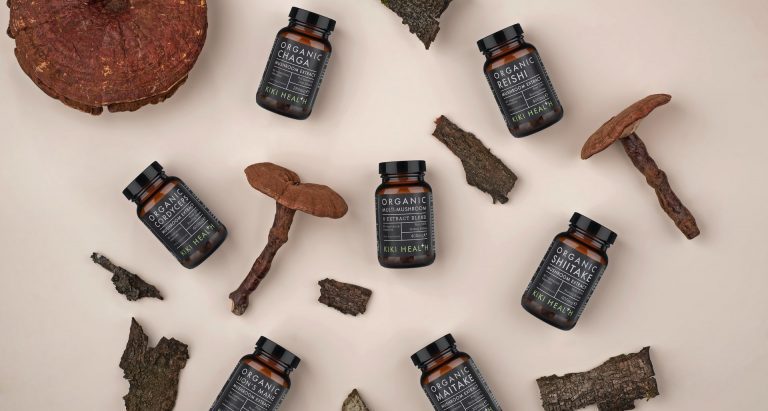The Importance of Vitamin D for Muscle, Testosterone, and Libido
Vitamin D is a very important fat-soluble vitamin that supports many functions in the body like hormone secretion, bone strength, muscle health, and immunity. But what’s the role of vitamin D for muscle, testosterone, and libido enhancement? Is vitamin D a steroid, prohormone, or just a vitamin?
Vitamin D: Sun or Food?
Vitamin D is present in food, especially animal products like seafood, cod liver oil, eggs, and dairy, but also in mushrooms and orange juice. With the help of bile acid and pancreatic juices, vitamin D is absorbed in the small intestine. It is stored in fat tissue and can be mobilized later if we need it.
- Through sun exposure, we can synthesize vitamin D through our skin (which acts as a gland).
- Exposure to UV light photolyzes provitamin D3 to previtamin D3.
- Then, with the help of two conversions, the vitamin D becomes 25(OH)D3 or calcidiol in the liver (stored), and the second hydroxylation in the kidney makes it a 1,25(OD)2D3 or “the usable” calcitriol, the active form. (1)
A lot of factors can influence our vitamin D levels and its absorption. Genetics can play a role, the melanin in our skin, the thickness of the epidermis, sunscreen and creams, the duration of sun exposure, the strength of UV light, our enzymes and absorption, age, sex, etc. That’s why it’s best to test our vitamin D levels, instead of predicting we have enough because we took a 15-minute walkout in the sun.
Vitamin D Functions
The main functions of vitamin D include:
- Supporting immune function: increases immune cell production, helps us fight bacteria and infections, modulates innate and adaptive immune responses
- Building strong bones and teeth: helps with calcium metabolism, has anabolic bone properties, increases bone strength (mass) and BMD, reduces fracture risk
- Controls bone metabolism: has both bone anabolic and catabolic properties, helps with osteoblasts (bone formation) and osteoclasts activation (bone resorption)
- Supports muscle regeneration: plays a role in neuromuscular function (muscle activation) and strength, may improve physical performance, and alters protein synthesis in the muscle
- It is essential for testosterone (and other sex hormones) production: is correlated with higher testosterone levels.
- Aids in regeneration, growth, development, and reproductive health
- Supports libido through the production of sex hormones like testosterone, estrogen, and progesterone.
Vitamin D on Muscle Growth
When it comes to muscle growth there is no substitute for resistance training and a high-protein diet. But it seems that optimal vitamin D levels can support muscle regeneration. Partially because vitamin D is important for testosterone production, which is a crucial hormone for muscle anabolism.
Walking Sway, Lower Body Strength, and Physical Performance
Physical performance and vitamin D status are associated. Supplementation of vitamin D can reduce the risk of falls, improve muscle performance and also impact muscle morphology and composition in older adults. (2)
There are vitamin D receptors in muscle cells. Although the mechanism behind D vitamin and muscle growth isn’t so clear, it is known that for muscular development the activation of these receptors is important.
Different RCTs and meta-analyses have shown better neuromuscular function when supplementing with vitamin D in elderly people with low levels. Vitamin D was especially important for lower body strength, improved physical performance, and reduced walking sway. (3)
Deficiency or hypovitaminosis of vitamin D is known to reduce performance and muscle function while supplementing with vitamin D can improve strength and gait in the elderly population. (4)
summary
The most effective use of vitamin D was in improving lower body muscle strength, gait, walking sway, and neuromuscular control in the elderly population deficient in vitamin D. It may reduce the risk of falls and fractures, too.
Muscle Size, Strength, Regeneration & Mitochondria
Vitamin D is involved in different pathways that regulate muscle growth and myocyte proliferation. It is again shown to improve muscle size and strength in the vitamin D deficient population and hemodialysis patients. (5) (6)
In terms of regeneration, vitamin D may aid in renewal capacity and improve muscle regeneration. Vitamin D receptor has an essential role in mitochondria function and muscle recovery. The potential effect includes improving oxidative capacity and reducing oxidative stress. (7)
Vitamin D regulates different signaling pathways in the muscle like differentiation, development, and proliferation of muscle cells that can affect muscle growth.
While vitamin D2 seemed ineffective for strength, supplementation of vitamin D3 in young healthy athletes has proven effective in terms of improving muscle strength. (8)
Another study looked at vitamin D supplementation during 12 weeks period, in both young and elderly men. With the incorporation of resistance training (12 weeks) the vitamin D and placebo group didn’t differ. However, vitamin D did improve muscle quality elderly and increased type IIa muscle fibers in the younger population. (9)
summary
Vitamin D plays an important role in supporting muscle growth and strength. Activation of vitamin D receptors seems to affect muscle regeneration, and vitamin D may improve mitochondrial function which supports recovery. Vitamin D seems pretty important for muscle growth & strength, and supports many anabolic functions in the body, even for young and healthy athletes.

Vitamin D on Testosterone
Testosterone is a sex hormone important for reproduction. Most of it (95%) is made by the testicles and some by the adrenal glands. It is bound to SHBH or albumin in the blood, this is your bound testosterone. The free-floating one can be used by tissues and serve for muscle growth. (10)
Aside from muscle growth and reproduction, testosterone is important for bone mass, strength, red blood cell production, fat loss, sperm production, growth, and development.
Although peripheral synthesis of testosterone doesn’t usually have a systemic effect, it is associated with higher anabolism, important for muscle growth.
Low vitamin D or hypovitaminosis are positively associated with androgen deficiency or low testosterone levels, and usually, this signals low anabolism and poor health status. (11)
German researchers have found that supplementing with 3,333 IU of vitamin D3 daily in overweight people who were on a 12-months weight loss program led to: (10)
- decrease in triglyceride levels
- decrease in cytokine TNF-alpha
- increase in LDL cholesterol
- increase in testosterone levels
Not jut total testosterone, but bioavailable and free testosterone also were affected (increased) by vitamin D supplementation. (10)
In another study out of 200 healthy overweight men enrolled, 165 finished the trial. 3,332 IU of vitamin D was administrated daily for 1 year, which led to an increase in total, free, and bioactive testosterone levels. (12)
On the other side, we can see research showing no association between androgen levels in young and healthy men and insufficiency or deficiency in vitamin D concentration. Testosterone didn’t change with vitamin D3 levels in healthy men, but it affected insulin sensitivity. (13) (14)
summary
Vitamin D can support testosterone production and vitamin D status is associated with androgen activity and Testosterone levels. Both are important for muscle growth, regeneration, bone mass, and libido. In people with vitamin D deficiency, overweight, or on a weight-loss program, supplementing with vitamin D increased free, bioavailable, and total testosterone levels. However, in young and healthy adults (within the normal vitamin D range) these effects are minimal, or non-significant.
Vitamin D on Libido
The reason behind vitamin D’s effect on libido is its potential to elevate testosterone or support sex hormones. Testosterone is the main hormone that stimulates male sex drives, and contrary to popular beliefs, women’s too.
In females with low libido after menopause higher testosterone led to increased sexual desire, and also, the estrogen-testosterone combo doubled their sexual interest compared to estrogen only. (15)
Libido is one of many subjective factors for health like vitality, energy, and mood. High libido doesn’t mean that we will live to 100 years, but healthy people usually are having higher sex drive.
In many cases of caloric restriction, think bodybuilding competitions or female athlete triad, libido suffers quickly. Men can have erectile dysfunction, women can miss cycles. Fertility and libido seem to be associated, as in such starvation scenarios the body isn’t ready to produce (sperm or eggs), so the natural sex hormone levels suffer too.
It has been shown that women with low vitamin D intake (which may translate to low libido too) are less likely to conceive. (16)
Low testosterone, especially in men is correlated with low sex drive, lower sexual arousal, and satisfaction. But can vitamin D3 solve this problem? It depends. For people with vitamin D deficiency, it can certainly help.

In women with vitamin D deficiency or insufficiency, oral vitamin D supplementation for 6 months lead to improved FSFI scores, meaning higher rates of sexual desire, orgasm, and satisfaction. Also, it reduced depressive symptoms and improved mood. (17)
Another similar research shows the same case for men. Low levels of vitamin D we associated with low erectile function, orgasm, and sexual desire. (18)
Higher levels of vitamin D are associated with higher testosterone levels. Not to our surprise, higher testosterone is related to better erectile function. (19)
summary
Sex hormones affect sex drive. Since vitamin D can affect sex hormones, it influences our libido. Especially in vitamin D insufficient/deficient people, vitamin D3 might help to raise libido (testosterone). In both males and females, vitamin D3 supplementation showed an increase in libido, sexual desire, orgasm, mood, and satisfaction.
Vitamin D: Hormone, Steroid, or Vitamin?
It’s unclear to many people whether vitamin D is a hormone, a prohormone, previtamin, or a steroid. Because of its similar structure to many sex or stress hormones, vitamin D was hard to classify.
D vitamins are a group of fat-soluble vitamins. The vitamin D3 we are referring to is cholecalciferol. The thing is, through sun exposure we photolyze D3 to previtamin D3. After two conversions it becomes 25(OH)D3 or calcidiol in the liver, and after hydroxylation in the kidney, it becomes 1,25(OH)2D3 or the active form, usable calcitriol.
When we obtain it through food or supplements, we either get D2 (ergocalciferol) or D3 (cholecalciferol) both of which are absorbed well, but D2 doesn’t have the same metabolic effect as D3.
We’ve seen it can be a previtamin, or active vitamin, but can it be a steroid? Well, classification is tricky because we don’t really synthesize our vitamins.
Vitamin D is also known as steroid hormone because it is produced endogenously, and like other hormones, it is a signaling molecule for many physiological and metabolic processes.
summary
Vitamin D3 is a fat-soluble vitamin, a steroid hormone, and a previtamin. All three classifications are true, based on where we get D3 (sun, food, supplements) and in which form/stage it is (activated, non-activated). We can synthesize D3 under UV light, it acts as a signaling molecule, like other hormones in the body, but it’s also a vitamin found in foods such as seafood, egg yolks, fish, beef liver, fortified orange juice, and mushrooms.
Conclusion
Vitamin D is an important steroid hormone or fat-soluble vitamin which plays an important role in muscle growth, strength, bone metabolism, immunity, energy, libido, and testosterone production. It can increase lower body strength, muscle quality, gait, and walking sway, especially in the elderly, D3-deficient population.
It can improve sex drive, satisfaction, and mood in both men and women. It may elevate free, bound, and total testosterone in overweight, or vitamin D deficient population, but has minimal effect in healthy young men with normal vitamin D levels.








